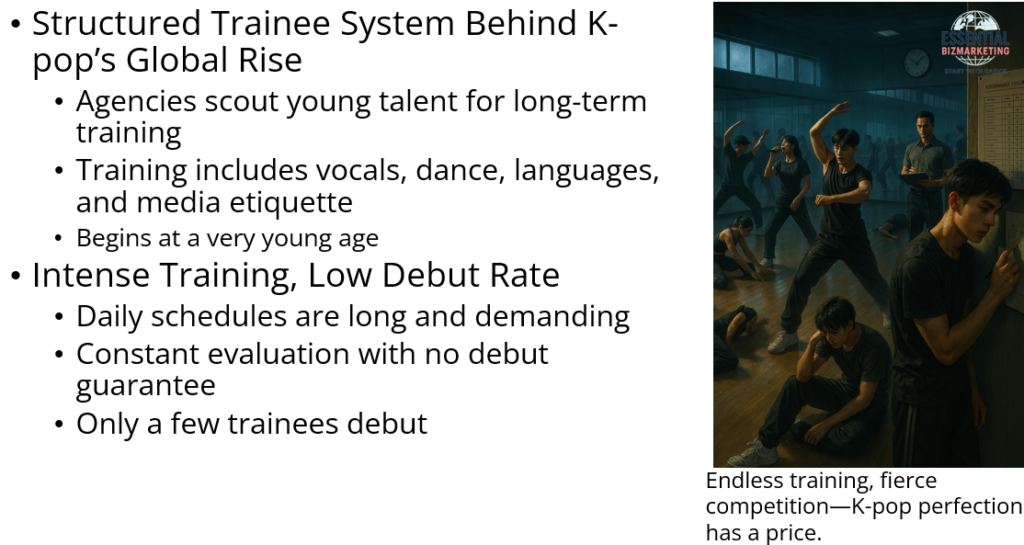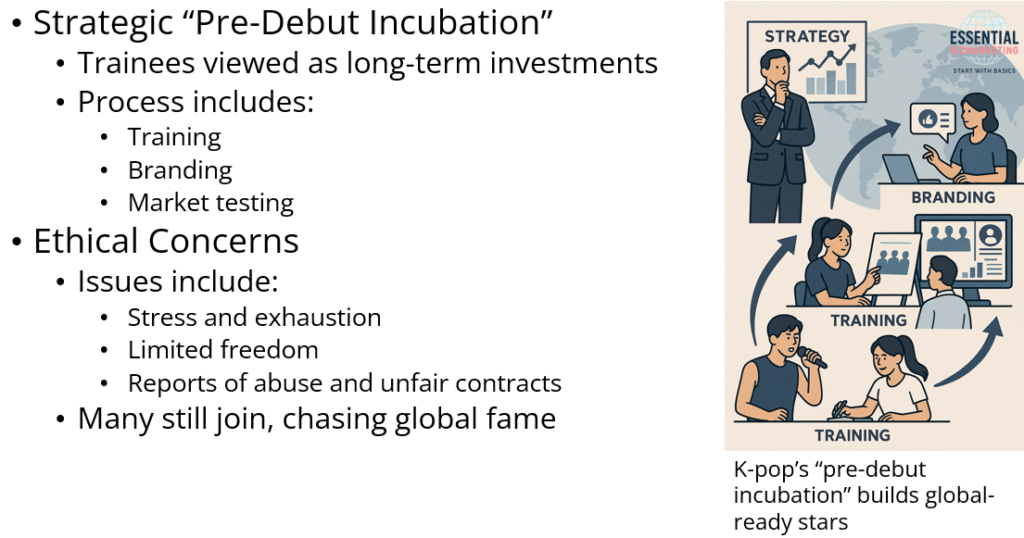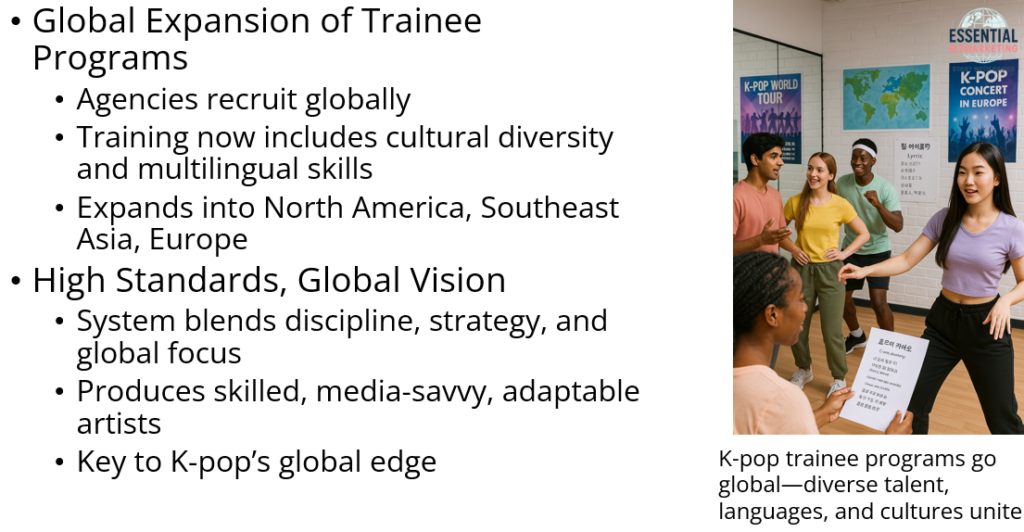A Systematic Pathway to Stardom

The global success of K-pop is not merely a cultural phenomenon but a product of a meticulously structured system known as the K-pop trainee system. This system functions as a developmental pipeline where entertainment agencies scout and recruit young talents, who then undergo years of rigorous training before debuting. These training programs are characterized by intensive instruction in vocals, dance, foreign languages, and media etiquette, often starting from a very young age (Kpop is for Everyone, 2023).
Daily Discipline and Ruthless Competition
A typical trainee’s daily schedule is grueling—beginning early in the morning and continuing late into the night. During this period, trainees live under constant evaluation, with no guarantee of debuting. According to a report by Korea JoongAng Daily, only a small fraction of trainees eventually make it to the stage, reflecting both the competitive nature and high standards of the industry (JoongAng Daily, 2022). Nonetheless, the system’s demanding nature contributes significantly to the professional polish seen in K-pop performances.
Strategic Investment and Pre-debut Planning

The structured nature of this system is rooted in the strategic vision of Korean entertainment companies, which view trainees as long-term investments. As CJ ENM (2023) notes, entertainment agencies apply a “pre-debut incubation” approach that includes training, branding, and market testing before a group’s official launch. This strategy helps mitigate risks and enhances market adaptability across global audiences.
Mental Health and Ethical Concerns
However, the system is not without criticism. Trainees often face emotional stress, physical exhaustion, and limited personal freedom. The Guardian (2020) has reported instances of abuse, mental health challenges, and exploitative contracts within the industry. Despite such concerns, many trainees voluntarily enter the system with hopes of stardom, driven by the glamour and global visibility that K-pop now commands.
Globalization and Cultural Adaptation

Notably, the internationalization of K-pop has influenced the structure of trainee programs. Many agencies now scout talent globally and adapt their training programs to accommodate cultural diversity. Multilingualism and cross-cultural understanding have become vital components of training, as K-pop groups increasingly target non-Korean markets (Wikipedia, 2024). This strategic global orientation has allowed K-pop to thrive in regions such as North America, Southeast Asia, and Europe.
Conclusion: Discipline Meets Global Vision
Ultimately, the K-pop trainee system exemplifies a unique blend of discipline, innovation, and global vision. While its intensity raises ethical questions, there is no doubt that it plays a central role in the continued global competitiveness of K-pop. The system produces artists who are not only highly skilled but also media-savvy and adaptable—qualities essential in a rapidly evolving international music industry.
📚 References
CJ ENM. (2023). Behind talk: Unraveling the secrets behind K-pop’s epic global success. https://www.cjenm.com/en/news/behind-talk-unraveling-the-secrets-behind-kpops-epic-global-success/
JoongAng Daily. (2022, July 11). Competition among K-pop trainees intensifies. https://koreajoongangdaily.joins.com/2022/07/11/opinion/fountain/Kpop-trainees-competition/20220711192843340.html
Kpop is for Everyone. (2023, February 27). The beginning of a journey: K-pop trainee system and its characteristics. https://kpopisforeveryone.wordpress.com/2023/02/27/the-beginning-of-a-journey-k-pop-trainee-system-and-its-characterisitics/
The Guardian. (2020, March 29). Behind K-pop’s perfect smiles and dance routines are tales of sexism and abuse. https://www.theguardian.com/global/2020/mar/29/behind-k-pops-perfect-smiles-and-dance-routines-are-tales-of-sexism-and-abuse
Wikipedia. (2024). Korean idol. https://en.wikipedia.org/wiki/Korean_idol
📁 Start exploring the Blog
📘 Or learn more About this site
🧵 Or follow along on X (Twitter)
🔎 Looking for sharp perspectives on global trade and markets?
I recommend @GONOGO_Korea as a resource I trust and regularly learn from.
